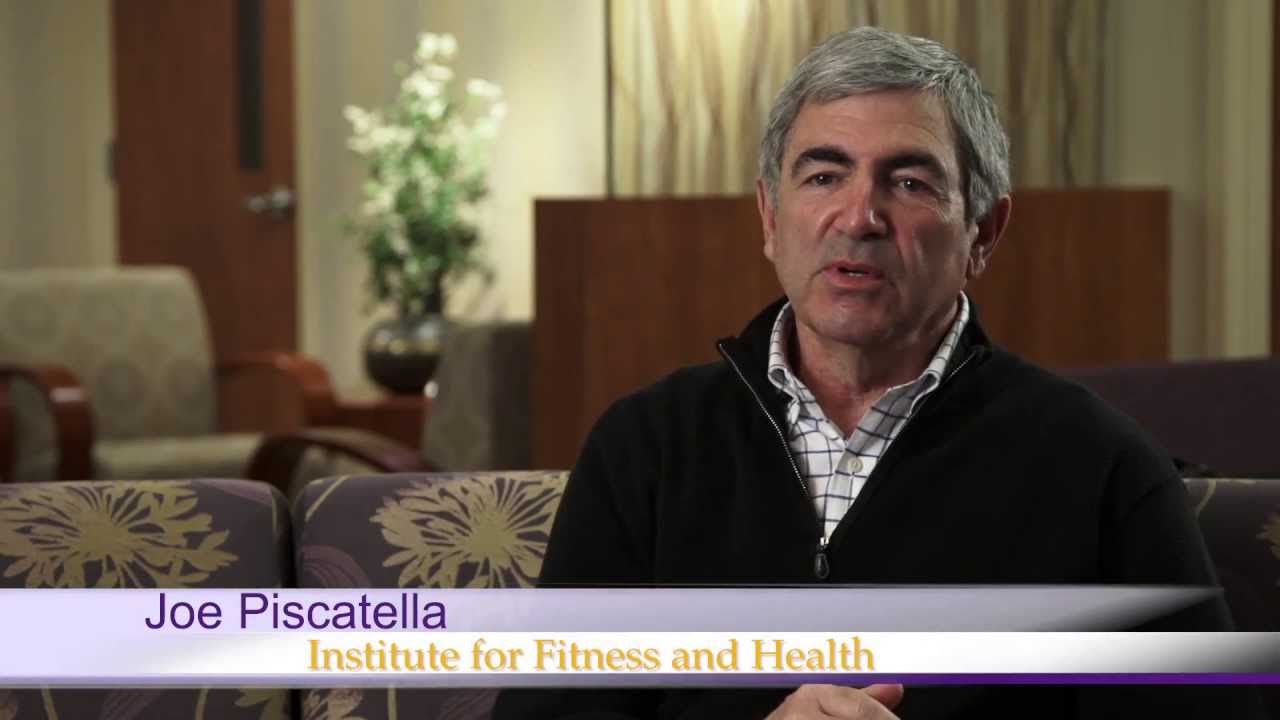The Importance Of Exercise - A Comprehensive Guide
Exercise is one of the most important things you can do for your overall health and well-being. It has a wide range of benefits for your physical, mental, and emotional health, and can help you live a longer, happier life. In this comprehensive guide, we will explore the importance of exerciseand how you can make it a part of your daily routine.
Physical Health Benefits And Importance Of Exercise
Regular exercise has numerous physical health benefits that can help you live a healthier and longer life. Here are some of the key benefits of exercise for your physical health:

The importance of exercise
Weight Management
Exercise is an effective way to manage your weight and prevent obesity. By burning calories and increasing your metabolism, exercise can help you maintain a healthy weight and reduce your risk of developing chronic diseases like diabetes and heart disease.
Cardiovascular Health
Exercise is also great for your heart and cardiovascular system. Regular physical activity can help lower your blood pressure, reduce your risk of heart disease, and improve your overall cardiovascular health.
Strength And Flexibility
Exercise can also help you build strength and improve your flexibility. Strength training exercises like weight lifting can help you build muscle and improve your bone density, while stretching exercises like yoga can improve your flexibility and range of motion.
Improved Immune Function
Exercise has also been shown to improve immune function, which can help you fight off infections and diseases. Regular physical activity can also reduce your risk of developing chronic diseases like cancer and autoimmune disorders.
Mental Health Benefits Of Exercise
Exercise isn't just good for your physical health – it's also great for your mental health. Here are some of the key mental health benefits of exercise:
Stress Reduction
Exercise is a great way to reduce stress and improve your overall mood. Physical activity releases endorphins, which are natural mood-boosters that can help you feel more relaxed and happy.
Improved Cognitive Function
Regular exercise has also been shown to improve cognitive function and brain health. Exercise can help improve your memory, attention, and overall brain function, which can help you stay sharp and focused as you age.
Reduced Risk Of Depression And Anxiety
Exercise has been shown to reduce the risk of developing depression and anxiety. Regular physical activity can help improve your mood and reduce feelings of stress and anxiety, which can help prevent the onset of these mental health disorders.
Improved Sleep Quality
Exercise can also improve your sleep quality, which is essential for your overall health and well-being. Regular physical activity can help you fall asleep faster, sleep more deeply, and wake up feeling more refreshed.
How To Incorporate Exercise Into Your Daily Routine
If you're not currently exercising regularly, it can be difficult to know where to start. Here are some tips for incorporating exercise into your daily routine:
Start Small
If you're new to exercise, it's important to start small and gradually build up your fitness level. Start with short, low-intensity workouts and gradually increase the intensity and duration over time.
Find Activities You Enjoy
Exercise doesn't have to be boring or unpleasant. Find activities you enjoy, whether it's walking, swimming, dancing, or playing sports. This will help you stick to your workout routine and make exercise a fun part of your day.
Make It A Habit
The key to making exercise a regular part of your routine is to make it a habit. Set aside time each day for physical activity, and make it a priority in your schedule. Over time, exercise will become a natural and enjoyable part of your daily routine.
Stay Accountable
Finally, it's important to stay accountable to yourfitness goals. This can help you stay motivated and on track with your exercise routine. Consider finding a workout buddy, joining a fitness class, or hiring a personal trainer to help you stay accountable and motivated.
Overcoming Barriers To Exercise
While exercise has numerous benefits, many people struggle to make it a regular part of their routine. Here are some common barriers to exercise and tips for overcoming them:
Lack Of Time
One of the most common barriers to exercise is a lack of time. If you're struggling to find time to exercise, try breaking up your workouts into shorter sessions throughout the day. For example, you could do a 10-minute workout in the morning, another 10-minute workout at lunchtime, and a final 10-minute workout in the evening.
Lack Of Motivation
Another common barrier to exercise is a lack of motivation. If you're struggling to stay motivated, try setting specific, achievable goals for yourself. You could also find a workout buddy or hire a personal trainer to help keep you accountable and motivated.
Fear Of Injury
If you're worried about getting injured while exercising, start with low-impact activities like walking, swimming, or cycling. You can also work with a personal trainer to ensure that you're using proper form and technique during your workouts.
Lack Of Access To Equipment Or Facilities
If you don't have access to a gym or exercise equipment, don't let that stop you from exercising. There are many bodyweight exercises that you can do at home, such as push-ups, squats, and lunges. You can also find affordable exercise equipment, like resistance bands or dumbbells, online or at sporting goods stores.
Creating A Well-Rounded Exercise Routine
To get the most benefit from exercise, it's important to create a well-rounded exercise routine that includes both cardiovascular exercise and strength training. Here are some tips for creating a well-rounded exercise routine:
Cardiovascular Exercise
Cardiovascular exercise is any type of exercise that raises your heart rate and improves your cardiovascular health. This can include activities like walking, running, cycling, swimming, or dancing. Aim for at least 150 minutes of moderate-intensity cardiovascular exercise per week, or 75 minutes of vigorous-intensity exercise.
Strength Training
Strength training exercises help build muscle and improve your overall strength and endurance. This can include activities like weight lifting, bodyweight exercises, or resistance band workouts. Aim for two to three strength training sessions per week, focusing on all major muscle groups.
Flexibility And Balance
Flexibility and balance exercises can help improve your range of motion and prevent falls and injuries. This can include activities like yoga, Pilates, or tai chi. Aim for at least two sessions per week of flexibility and balance exercises.
Special Considerations For Exercise
While exercise is beneficial for most people, there are some special considerations to keep in mind, especially if you have certain health conditions or are in a specific stage of life. Here are some tips for exercising safelyand effectively:
Pregnancy
If you're pregnant, regular exercise can help you maintain a healthy weight, reduce your risk of gestational diabetes and preeclampsia, and improve your mood and energy levels. However, it's important to talk to your doctor before starting a new exercise routine and to avoid activities that could increase your risk of falls or abdominal trauma.
Older Adults
As we age, exercise becomes even more important for maintaining mobility, preventing falls, and reducing the risk of chronic diseases like heart disease and diabetes. However, older adults should be cautious when starting a new exercise routine and should focus on low-impact activities that are safe and appropriate for their fitness level.
Chronic Health Conditions
If you have a chronic health condition like arthritis, diabetes, or heart disease, exercise can help improve your symptoms and reduce your risk of complications. However, it's important to talk to your doctor before starting a new exercise routine and to choose activities that are safe and appropriate for your condition. You can read more about how exercise can help your recovery with this scientific articlefrom Stationzilla.
Recovery From Injury Or Surgery
If you're recovering from an injury or surgery, exercise can help improve your strength, mobility, and overall recovery. However, it's important to work with a physical therapist or healthcare provider to develop a safe and effective exercise plan that takes into account your specific injury or surgery.
People Also Ask
What Are 5 Reasons Why Exercise Is Important?
- Improves cardiovascular health and lowers the risk of heart disease.
- Helps maintain a healthy weight and reduce the risk of obesity.
- Boosts mood and reduces the risk of depression and anxiety.
- Strengthens muscles and bones, reducing the risk of injury and osteoporosis.
- Improves sleep quality and overall energy levels.
What Are The 10 Benefits Of Exercise?
- Reduces the risk of chronic diseases like heart disease, diabetes, and certain types of cancer.
- Improves cardiovascular health and lowers blood pressure and cholesterol levels.
- Helps maintain a healthy weight and reduce the risk of obesity.
- Boosts mood and reduces the risk of depression and anxiety.
- Improves sleep quality and overall energy levels.
- Strengthens muscles and bones, reducing the risk of injury and osteoporosis.
- Improves brain function and cognitive performance.
- Enhances immune system function and reduces the risk of infections and illnesses.
- Increases endurance and overall physical fitness.
- Enhances overall quality of life and well-being.
What Is The Importance Of Exercise Essay?
An essay on the importance of exercise would discuss the numerous physical, mental, and emotional health benefits of exercise. It would highlight the importance of exercise in maintaining cardiovascular health, reducing the risk of chronic diseases, improving mood and cognitive function, and enhancing overall well-being. It would also discuss the barriers to exercise and provide tips for creating a well-rounded exercise routine that is safe and effective for all ages and fitness levels. Ultimately, an essay on the importance of exercise would emphasize the critical role that exercise plays in promoting a healthy and happy life.
Conclusion
In conclusion, exercise is a crucial component of a healthy lifestyle. It has numerous physical, mental, and emotional health benefits that can help you live a longer, happier life. By incorporating exercise into your daily routine and staying consistent with your workouts, you can improve your overall health and well-being and enjoy a better quality of life. So why wait? Start moving today and experience the amazing benefits of exercise for yourself!

